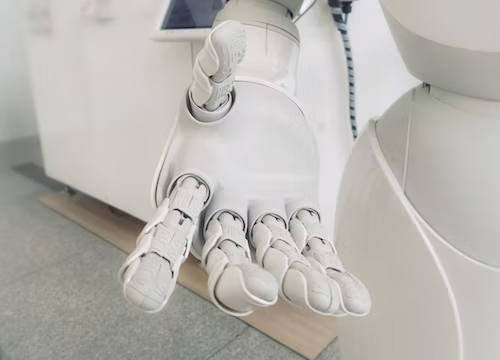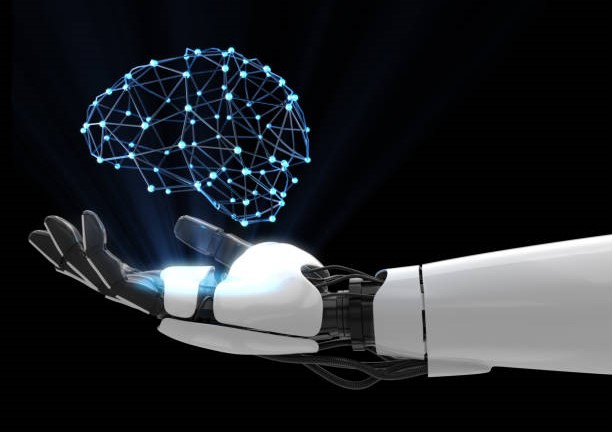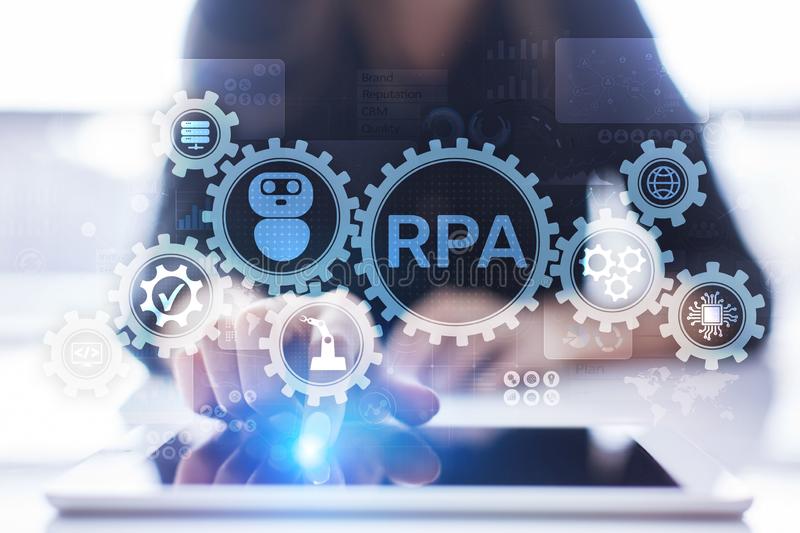Automating Human Intervention of front/back-office tasks by Robotic Process Automation. (RPA)
Robotic Process Automation, or RPA, is a technology that, like AI and Machine Learning, automates jobs. RPA is the use of software to automate business operations such as application interpretation, transaction processing, data management, and even email response. RPA automates tasks that formerly required human intervention. RPA, also known as software robotics, uses automation technology to replicate back-office functions performed by humans, such as extracting data, filling out forms, moving files, and so on. RPA is used to automate a variety of supply chain tasks, including data input, predictive maintenance, and after-sales assistance. RPA is utilized in a variety of industries to automate repetitive, high-volume processes. RPA is used by telecommunications firms to set up new services and billing systems for new accounts. RPA can be used to automate repetitive processes that require human intervention in both the back office and the front office. Automation of data entry, data extraction, and invoice processing are some of the most popular RPA examples and use cases we come across.
Difference between Traditional Automation & RPA
It's difficult to appreciate the differences between Robotic Process Automation and Traditional Automation without first understanding their definitions. RPA (Robotic Process Automation) is a type of software that automates a large number of repetitive and rule-based processes. RPA software enables users to create and deploy software robots that can perform human-like tasks. It enables users to delegate jobs to hundreds or thousands of virtual machines that can complete the tasks without the usage of actual devices. Traditional Automation, on the other hand, employs a variety of programming techniques to accomplish parallel execution or scalability. Pre-defined activities and business rules are also used by these technologies to execute a combination of tasks, transactions, and processes across software systems autonomously. RPA can achieve the required outcome without the need for human intervention. Traditional Automation, on the other hand, is the automation of any repetitive process. It combines database and infrastructure integration with application integration. It only necessitates a small amount of human intervention.
Across the Boards, completing and increasing work productivity by consuming time.
Robotic process automation (RPA) has swiftly become one of the most important endeavours in recent years to help organizations improve their efficiency and achieve long-term profitability. RPA is typically used as an introduction to the convenience and speed that automation can bring to a firm, although it is only one component of the modern business technology puzzle. Your team can do more every day by having rules-based software robots handle monotonous tasks that are usually hampered by human mistakes. Understanding the importance of RPA in today's organization is the first step toward a successful implementation. The ability to communicate the benefits of RPA is also essential for getting buy-in from those higher up the food chain. You'll need to illustrate how RPA can save money, decrease errors, increase agility, and justify its investment value. The benefits of RPA automation are based on a simple principle: let humans focus on their strengths while robots tackle the jobs that get in the way. Employees have far less time to devote to work that uses their expertise when they have to spend time on mindless operations like copying and pasting information between corporate platforms. Manual chores take up a lot of time and energy, so employees can't get as much done in a day.


Predictions for Robotic Process Automation - What does the future hold for RPA?
AI is expected to be the next transitory step for RPA. RPA will progress beyond rule-based technologies and begin to incorporate AI features. We've heard a lot about robotic process automation (RPA), and we're still shocked that people conflate it with artificial intelligence (AI). RPAs, in our understanding, are robots that can automate a variety of repetitive, labour-intensive, and rule-based operations. It may simply duplicate keyboard and mouse actions. It can open emails and attachments, collect and analyze social media analytics, and follow if/then rules, among other things. While Artificial Intelligence and RPA are distinct, they are inextricably linked. AI is expected to be the next transitory step for RPA. RPA will progress beyond rule-based technologies and begin to incorporate AI features.AI, Digital Employees, Total Workforce, and Digital Transformation will all play a role in the next great transformation in RPA. Employees that are digitally empowered and can contribute to innovation, creativity, and cooperation make up the digital workforce. The digital workplace may break down communication barriers and enhance productivity, efficiency, and innovation by integrating all communication technologies that employees use (email, instant messaging, social media platforms, virtual meeting tools, and HR applications). However, it can only produce results if the digital workplace strategy is successfully executed and focuses on a cultural shift.
Is RPA a viable career option? Is it possible to learn it?
This RPA fundamentals program's training material is specifically developed for beginners, and no prior coding knowledge is required. As a result, the application is relatively simple, to begin with. So, to cut a long tale short, you can make a career out of RPA with or without technical skills, depending on the role you play. To be honest, you don't need a technical background to start an RPA profession. The RPA industry offers a plethora of chances. If you want to work in a skill-based industry, RPA is the finest solution for you. According to Indeed, this industry is experiencing rapid expansion, with high-paying positions and job satisfaction. It is commonly assumed that RPA will result in employment losses, although this is not the case. RPA, in actuality, generates 58 million jobs. Talented RPA professionals will be in higher demand in the future years. In this industry, 3 to 5 skilled RPA developers can expect to earn roughly Rs. 1,200,000 per year. Freshers can expect to earn roughly INR 4 lakhs per year, with this figure likely to rise as they gain more experience.





